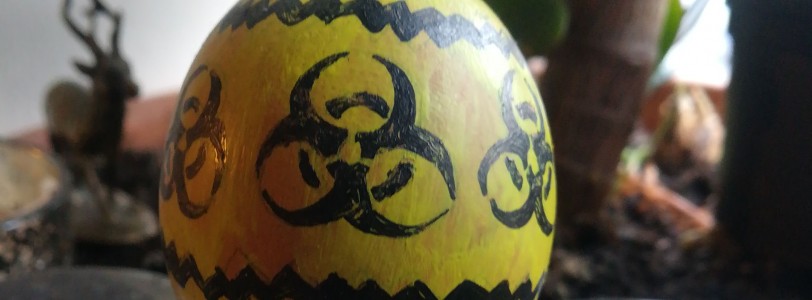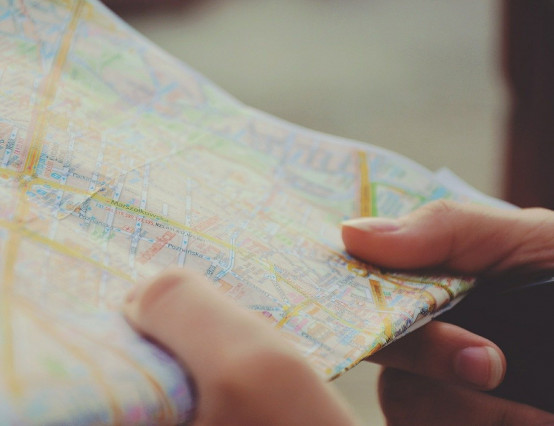People love a bit of fear. Going to the movies? Action, horror, dystopian future please. Holiday? Rollercoaster. Scared about being dead soon? How about a skydive? You conquer fear with more fear, and raise money for charity at the same time! So it shouldn't come as any surprise that fear is one of the main drivers for our media, especially of late.
So far I have survived the Millennium Bug, the end of the world in 2012 as predicted by the Mayans, and have failed to be sucked into a black hole following the launch of the Large Hadron Collider. These days viruses are pretty hot, and my survival record includes avoiding the horrors of Bird Flu, Swine Flu and Ebola. These last three are real dangers, and something we can expect more of.
We live in an overpopulated, heavily polluted, super-connected world that is heating up. You don't have to be a genius to work out that that's a gross place to live.
That said, many of these threats are rarely a credible threat to the privileged Western world. Our latest spectre, the Coronavirus, is no exception. We will survive this, but to deny our need to adjust would be a stupid way to go about it.
I started writing this piece about a week ago, and suspect that had I finished it then, this would have been a very different article. I, like many other lucky souls have been granted furlough (not the prison kind). For the unacquainted, furlough is where your job is 'put on hold' while you're put on 80% pay. During this time, you are essentially paid to exist until further notice. Depending on your responsibilities, it could be the closest most of us come to retirement…but it's not all sunshine and daisies. In the last week (and I write this with some uncertainty, as time seems to have lost all meaning) shopping for food has gone from feeling like Black Friday came early to a sedate reenactment of war time rationing. Even the panic for toilet roll has come to pass, although its cultural significance will long be remembered.
I decided to try to document the different mental states that seem to come about as a result of the world's first global pandemic.
Panic
Demonstrated perfectly by the hordes of shoppers fighting over toilet paper, panic is the first emotion we experience when faced with a disaster. A primal instinct sets in to acquire as much as you can to try and keep you and your loved ones safe, regardless of anybody else.
It’s not a pretty sight, but it’s normal human behaviour. Well done to those who managed to overcome it.
Shock
Although a separate stage in its own right, shock will often go hand-in-hand with panic.
You’ll attempt to do the things you normally do, but won’t be able to do them particularly well. This may include your job, if your boss is either still feeling the same way you are/decidedly unsympathetic, or your job happens to underpin the functioning of the country. No pressure.
Screaming Abdabs
Emotions reach a crescendo from being crammed in a house with other people whose life orders have been thrown out of whack.
Vigilant Calm
You become hyper aware of your surroundings and on some level, okay with them – the perfect mental state to start piecing your life back together.
As if by magic, detritus that's amassed following the demise of your normal routines erupts around you. In my case, it's a nest of dirty clothes around my bed, un-watered plants and a sad-looking corner of the living room now full of recycling.
Acceptance
The state I'm in now, one where my fears haven't gone but no longer dominate me.
It's no accident that this looks an awful lot like the five stages of grief. We're grieving the loss of a safety blanket we've had for a long time, or our whole lives if we're talking about our youngest generations.
A functioning government and a healthy economy have been pretty dry topics up until now, but this pandemic has ripped them free from the shackles of mundanity. No longer are they kept tucked away amongst the boring piffle of tax rebates, algebra and the Dewey Decimal System. No, now they are both under intense public scrutiny as their very existence seems to slip away before our eyes.
None of us know what the next stage is, and perhaps that's the scariest detail. For most of us, our closest frame of reference is a war on the edge of living memory, and it's not an obvious fit.
But take heart in the fact that you're reading this right now, so it's not over yet. In all honesty, things aren't as bad as they could be. We may come out of this fewer, poorer, a few pounds heavier and sick of rice and pasta, but we're also likely to come out more computer literate, with a much better grasp on communication, more creative skills, and stronger ties with our friends, family, neighbours and nature. This doesn't have to be another bad news story. If we all pull together, we can smash this like another bad cold.









0 Comments